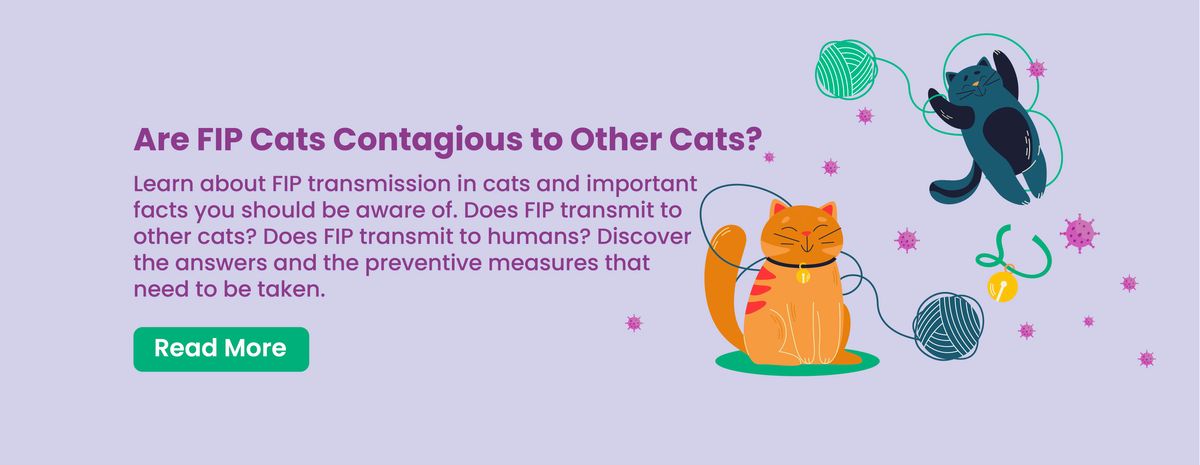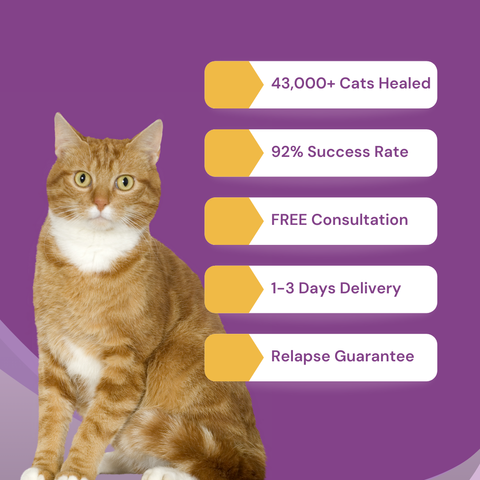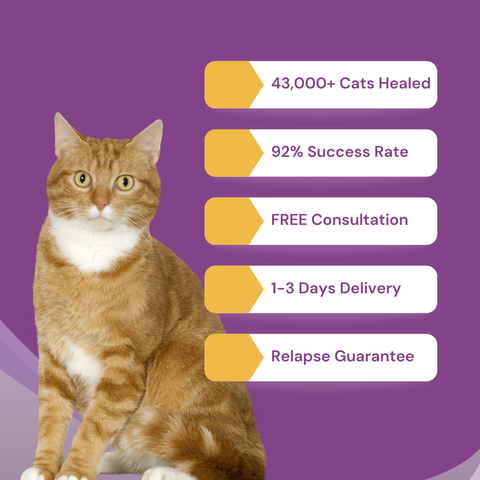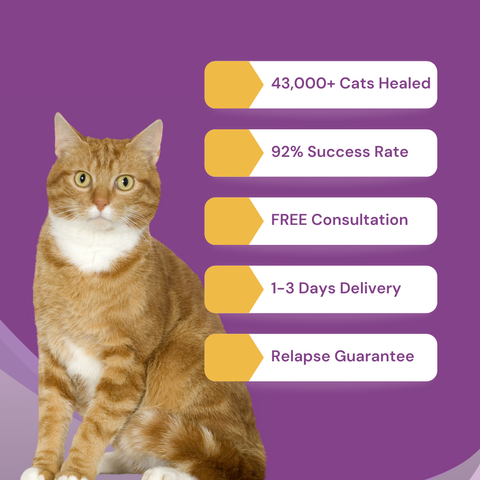
As cat owners, we want to provide the best for our beloved pets and protect them from various diseases. One disease that often concerns cat owners is Feline Infectious Peritonitis (FIP). But is FIP in cats contagious? Or is FIP contagious to humans? Let's discuss in this article about the need-to-know facts.
What is FIP in cats?
Feline Infectious Peritonitis (FIP) is a serious disease in cats and often causes concern for cat owners. The cause of FIP is a mutation of the FCOV or Feline Coronavirus, which can cause inflammation of the cat's organs and is highly fatal if left untreated.
Can FIP cats be transmitted to other cats?
One of the concerns that often arises is whether cats infected with FIP will transmit the disease to other cats, especially in a multicat household. The answer is NO, a cat with FIP will not transmit the FIP virus to other cats. It also won't spread to other pets species and humans.
FIP Carrier Virus in Cats
However, keep in mind that the infectious virus is the source of FIP virus in cats, which is the Feline Coronavirus (FCOV) or also known as Corona in Cats. FCOV is a feline coronavirus that occurs in cats and is only transmitted between cats, and not to humans or other pet species. FCOV is usually asymptomatic and may cause diarrhea. Nearly 80% of the global cat population is infected with this virus. However, it is important to note that FCOV itself is not deadly, but it has the risk of mutating into FIP which is fatal to cats if left untreated.
Prevention and Treatment
When your cat is infected with FCOV, there are several steps you can take to prevent the virus from mutating into FIP:
1. Avoid stressful events for your cat
Avoid stressing your cat, as stress can increase the chance of the FCOV virus mutating into FIP. Try to maintain a comfortable and calm environment for your cat, and give it enough attention and affection.
2. Keep the cat's environment clean
Keep your cat's environment clean, including bedding, feeding stations and litter boxes. Good hygiene will help keep your cat healthy and reduce the risk of spreading FCOV.
3. Isolate the infected cat
If your cat has the FCOV virus, avoid contact with other cats to avoid transmitting the virus. Consider isolating the infected cat until it improves and to ensure the other cats are not exposed to the virus.
4. Separate feeding, drinking, and littering areas
If you own more than one cat, make sure the feeding, drinking and littering areas are separated between cats. FCOV is mainly spread via fecal materials of the infected cat.
Although FIP in cats is not contagious, as responsible cat owners, it is important to understand and take preventative measures against the virus that causes FIP, FCOV. By doing so, we can keep our beloved cats healthy and prevent the spread of this virus among the cat population. It is also important to ensure your cat receives proper medical care if infected with FCOV or FIP. Consult your veterinarian on the necessary actions to take and the appropriate treatment plan.
If your cat shows symptoms of FIP, take it to the nearest veterinarian immediately for proper diagnosis and treatment. If you would like further consultation on the FIP virus and its treatment, you can contact Basmi FIP on WhatsApp or visit Basmi FIP's Instagram for guidance. You can also read a comprehensive guide to treating FIP in cats by clicking here.









